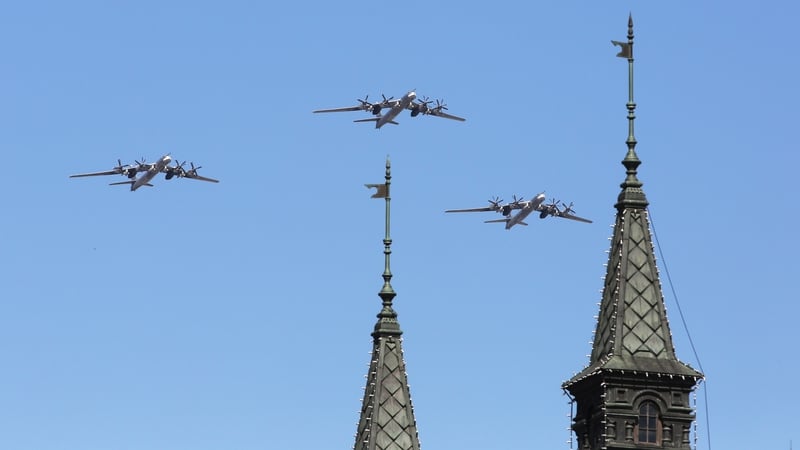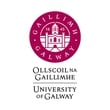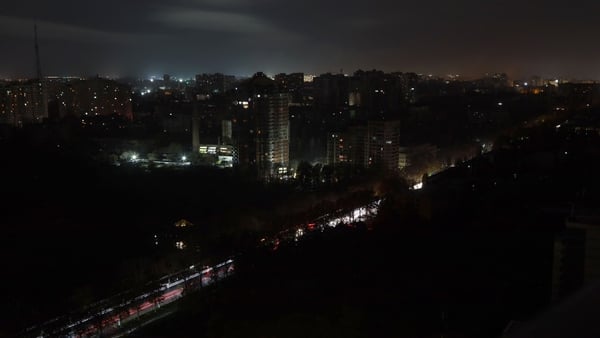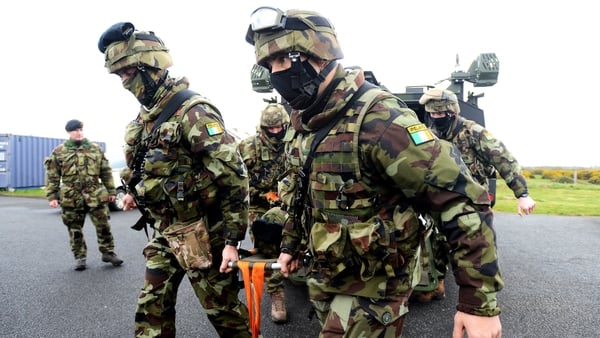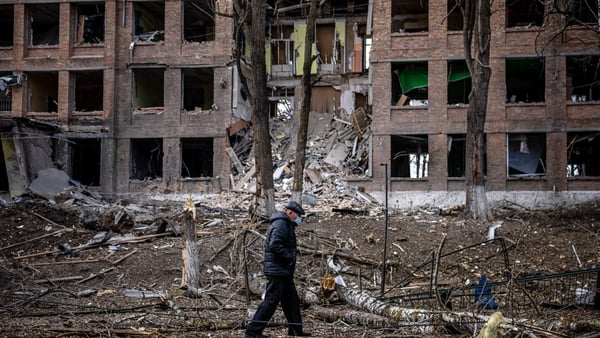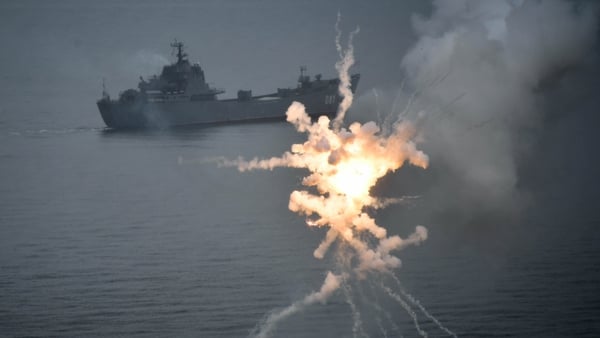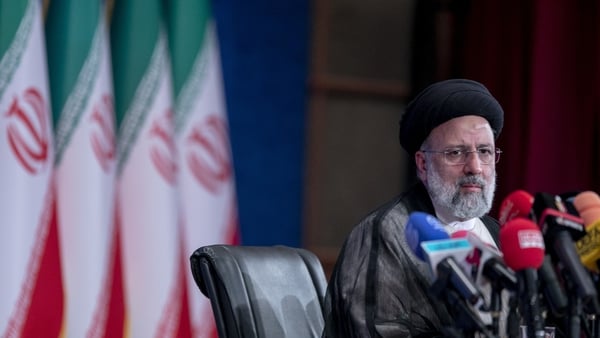Analysis: there have been reports of incursions of Russian bombers like the Tupolev TU–95 in airspace controlled by Ireland.
There have been a number of recent incursions into Irish controlled airspace by the Russian air force. Most recently Tupolev TU–95, the so called "Bear" strategic bomber aircraft, triggered UK Royal Air Force fighter jets to scramble in order to confront the Russian aircraft. Reliable sources indicate that there is an agreement between the UK and Ireland permitting the Royal Air Force to enter Irish airspace if deemed necessary, though the specific nature of this arrangement is not clear.
Like much of Russia's current military equipment, the Tupolev bombers are quite old, having come into service in the early 1950s. Although it is the only propeller powered bomber still in operational use today, it is far from obsolete and, like the United States B-52 bomber, it is planned to be in service for some time to come.
We need your consent to load this YouTube contentWe use YouTube to manage extra content that can set cookies on your device and collect data about your activity. Please review their details and accept them to load the content.Manage Preferences
A Matsimus profile of the Tupolev TU-95 bomber
So what were these Russian bombers doing in airspace controlled by Ireland? It is important to emphasise that they did not violate Irish sovereign airspace as such and that the Irish Aviation Authority are responsible for a much larger area than this. Nevertheless, such behaviour by Russian aircraft is reckless and dangerous, especially when they turn off their transponders, making them effectively invisible to civil aviation surveillance systems. Although somewhat provocative owing to the nature of the aircraft and the proximity to UK and NATO airspace, any reasonably minded person could not perceive this as posing any significant military threat by Russia.
Former NATO Supreme Commander in Europe, Admiral James Stavridis, has speculated that the Russians were testing a strategically important "gap" that controls the entrance to the North Atlantic and transatlantic commerce. Most likely, they are probing NATO and UK responses in particular. Relations between NATO and Russia have been strained for some time, due mainly to NATO's expansion into what was traditionally viewed as Russia's backyard. They may also wish to antagonise the UK and its allies, and sow discord within the alliance. At present, there are differences among NATO members as to what is an appropriate response. One thing is clear: this is not the result of a navigation error by Russian pilots.
In the past, incidents of this nature have prompted calls for Ireland to acquire the capability to intercept incursions by foreign military aircraft. Commenting on this recently, retired Major General Ralph James of the Irish Air Corps indicated that Ireland would need to invest in at least 15 fighter aircraft, as well as support crews and infrastructure, to counter such threats. However, this would cost the Irish exchequer a great deal of money. In fact, the purchase of such aircraft is only part of the overall cost, as the purchase and maintenance of an up-to-date air defence system to accompany this is also prohibitively costly.
We need your consent to load this rte-player contentWe use rte-player to manage extra content that can set cookies on your device and collect data about your activity. Please review their details and accept them to load the content.Manage Preferences
From RTÉ News, Irish Air Corps pilots prepare for the 2019 Bray Air Display
NATO members such as Belgium, Denmark, Norway and Portugal all have significant air defence capability, but they are part of a military alliance that requires such commitments. Ireland is not a member of NATO and as yet the EU has not adopted a common defence policy.
The case of the much wealthier Switzerland, a nation known to take its neutrality seriously, is an interesting example. In 2014, Swiss voters rejected a plan to purchase 22 Swedish Gripen jets from Saab for CHF 3.1 billion (€2.94 billion), overturning an earlier decision by the Swiss parliament. The Swiss government has since confirmed plans to acquire new fighter jets for around CHF6 billion (€5.68 billion) over the next few years, but a vote on this may also be taken before any purchase agreement is signed. The purchase of Eurofighter Typhoon fighter jets by Austria, another neutral country, also proved controversial and expensive.
It is almost certain that a similar proposal would be rejected if it was put to the general population of Ireland in a referendum. With a health and housing crisis, along with greater awareness of the need for climate action, it would not make sense to spend large amounts of exchequer funding on fighter aircraft. Even if we did, Ireland is not part of any military alliance and it would stand no chance of repelling an attack from a state with the military capabilities of Russia. Nevertheless, it is worth remembering that such a threat is low on the scale of security issues currently confronting Ireland.
From RTÉ Archives, Tom MacSweeney joins members of the Air Corps responsible for patrolling the Irish coastline on a daily basis for Nationwide in July 2007
Among the main threats identified in the 2015 White Paper on Defence were inter and intra-state conflict, terrorism, cyber attacks and espionage. The paper also declared natural disasters, cyber security and pandemics (such as the coronavirus) as national security issues.
Cyber attacks in particular can cripple a country's electronic infrastructure, including the wide range of network connected devices and systems that control or operate critical national infrastructure. There is evidence of such attacks and interference in elections by Russia, making attacks of this nature a more immediate threat to Ireland than violation of air space. There is no emphasis on air defence in the White Paper, and it concludes that the Air Corps will continue to operate a range of rotary and fixed wing aircraft to allow it continue to undertake the required military operations and to deliver a broad range of air supports to other government departments and agencies.
Russia violates these protocols by switching off transponders on military aircraft
In 2014, the Minster for Defence admitted in the Dail that the Air Corps was not tasked or equipped for monitoring or responding to unauthorised aircraft overflying Irish airspace. He described it as unacceptable for large aircraft to travel through international air space that is the responsibility of the Irish Aviation Authority without informing it and with the transponders deliberately turned off.
The Irish Aviation Authority has invested significantly in modern equipment, but it still relies on the co-operation of the military in order to monitor the whereabouts of military aircraft. There are agreements that states have signed to ensure maximum aviation safety. Russia, or any other state that violates these protocols, especially by switching off transponders on military aircraft, should be held to account for endangering other civil aircraft.
The views expressed here are those of the author and do not represent or reflect the views of RTÉ
